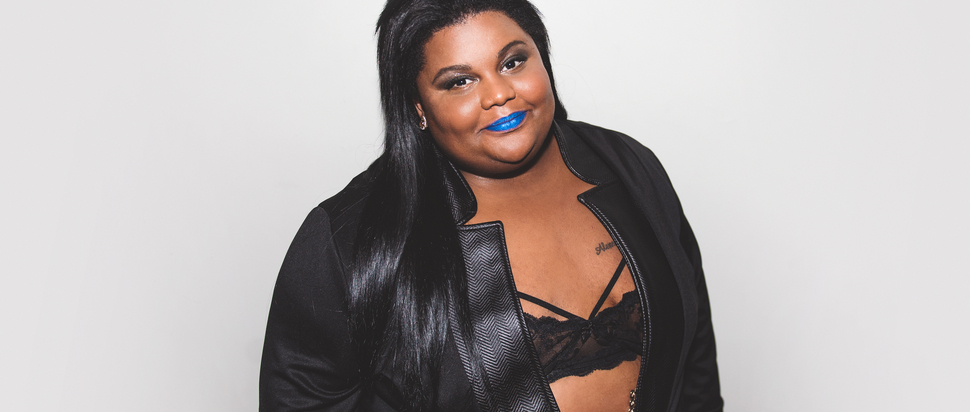MC Carol: The First Lady of the favelas
Ahead of her UK debut at Glasgow’s Counterflows Festival, we chat with MC Carol – the unapologetic baile funk star intent on opposing Brazil’s hard-right ruling party
On 1 January 2019, Jair Bolsonaro was sworn in as the 38th president of Brazil. A homophobic, climate change denying antifeminist, his election was emblematic of the South American nation’s sharp lurch to the right – something Carolina de Oliveira Lourenço has experienced first-hand. Performing as MC Carol, de Oliveira Lourenço is a leading light in the country’s baile funk scene (also known as funk carioca or favela funk), with lyrics confronting everything from race and gender politics to domestic violence and the education system at a time when it's becoming increasingly dangerous to speak out on such topics.
Like grime and drill in the UK and trap in the US, baile funk’s honest depiction of day-to-day life in the country’s poorest communities has angered Brazil’s emboldened Christian conservative community. We caught up with de Oliveira Lourenço ahead of her UK debut at Glasgow’s Counterflows Festival to find out more. Translation courtesy of Ana Paula Paulino of Ubuntu Produções.
The Skinny: Hi Carolina! Can you begin by introducing funk carioca and giving us a brief history of this style of music?
Carolina de Oliveira Lourenço: Funk carioca was born in the favelas of Rio in the 90s. At first, it was just the beat that was really good to dance to, and then came the lyrics that were about life in the favela, like rap. Only later people started to talk about sex and drug dealing.
What was your gateway into this scene? And how does funk proibidão, the style of music you've become associated with, differ from traditional funk carioca?
I did a song joking with a homeless person who always joked with me in my favela. Everybody loved it and they invited me to a baile funk [party] to sing it. The songs about sex are also a big part of the traditional funk carioca and the proibidão funk (about drug dealing) is also very common. Maybe the world just knows the funk melody because of artists like Anitta, but this is not the roots or the "real funk".
Which artists have you drawn inspiration from, both locally and from other parts of the world?
I really love Tati Quebra Barraco. She was one of the main women in funk at the beginning. Everybody used to say that I was just like her and now we are really good friends. Karol Conka is also an inspiration and a friend. I really like rap artists like Racionais MCs and others from the new generation of rap in Brazil, like BK and Baco Exu do Blues. From the other parts of the world, I love Beyoncé, Rihanna, Nina Simone, Amy Winehouse, Usher and others.
If you were to compare funk carioca to a style of music from another part of the world, what would it be?
Maybe dancehall or kuduro: black music that makes the body move.
Your music tackles an array of topics, ranging from feminism and the history of Brazil taught in schools to the murder of Rio de Janeiro councillor Marielle Franco. How have these songs been received from an increasingly conservative Brazilian public?
They say that I want to get famous and that's why I talk and write about this, but I don't care what they think. I was always a feminist before I knew this word existed and Marielle was someone that I really cared about. When they killed her, they killed a part of each black woman in Brazil – whether or not they knew her in person or through the media.
What does the election of President Bolsonaro mean for those from Brazil’s poorest communities? How can Brazilians, and those from further afield, take a stand against this worryingly repressive regime?
This government doesn't care about women, black, gay or poor people, but there's a lot of people from those groups that don’t realise it yet. It's too dangerous for people like me to keep saying the things I do. Marielle died because of it but we can't stay quiet. We need to keep fighting.
Your Facebook page has been bombarded with thousands of angry messages, with many translating to "Terrible singer, terrible person and terrible influence." With such a high level of online abuse, would it be fair to say you feel threatened as a black, feminist funk carioca artist in Bolsonaro’s Brazil?
I have always felt threatened, even before that, for being black and a woman. My ex tried to kill me because I didn't want to stay with him – we didn't agree about the end of the relationship. Imagine what powerful men can do to women who decide to speak out loud against a government? Marielle's death is a sad example.
What is the future of funk carioca? Can you see it spreading to other parts of the world and becoming a global phenomenon?
It's happening already! But I wish people in the world knew about the 'real' funk culture and not only superficially. The funk carioca came from the favela and we have so many good things and talented people there.
And what does the future hold for MC Carol?
I don't know what the future holds for me but I am happy to be able to live doing what I love: singing!
MC Carol plays Counterflows Festival at The Art School, Glasgow, 5 Apr
Counterflows Festival takes place at various venues in Glasgow, 4-7 Apr
facebook.com/mccaroldeniteroioficial
